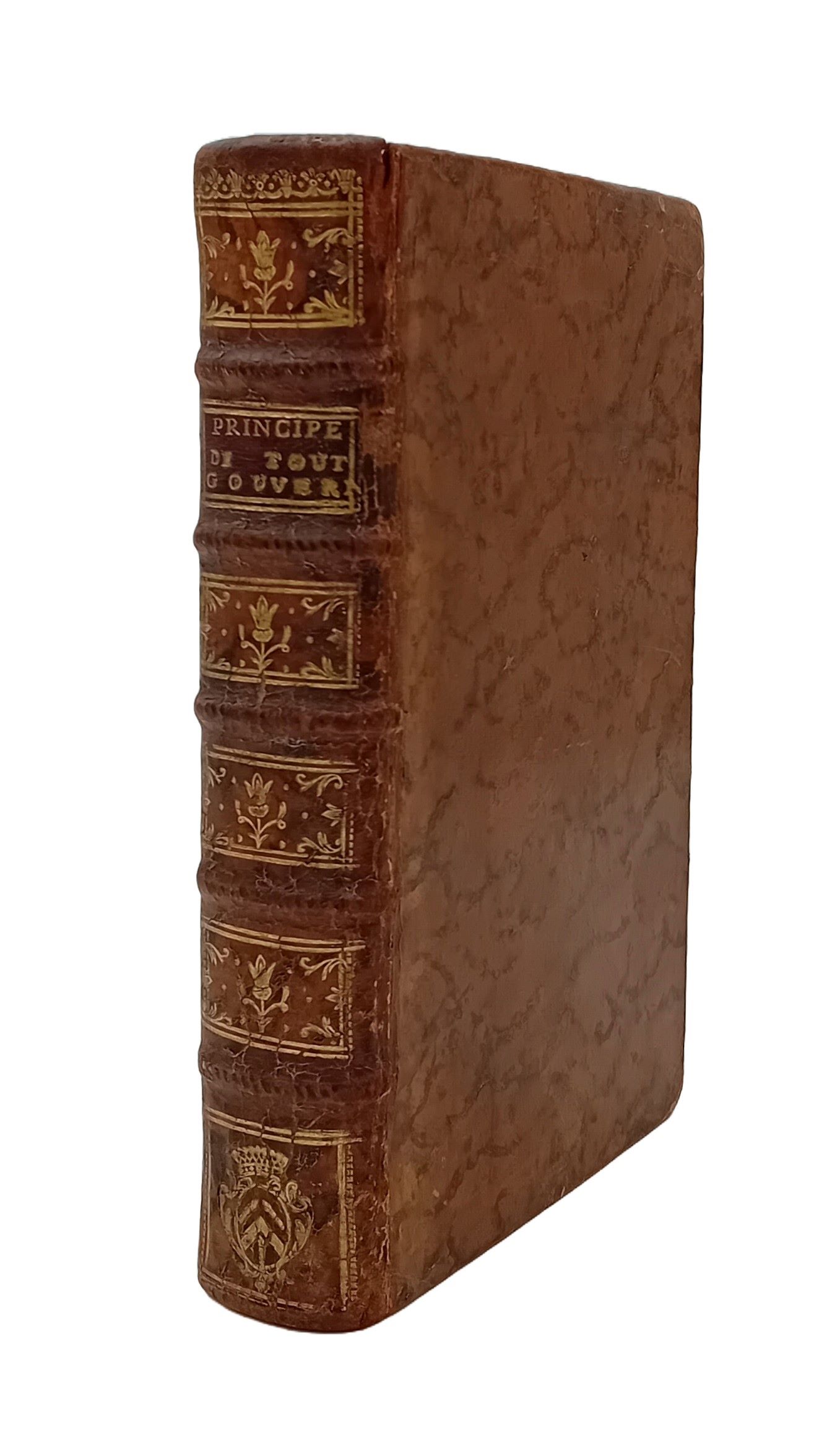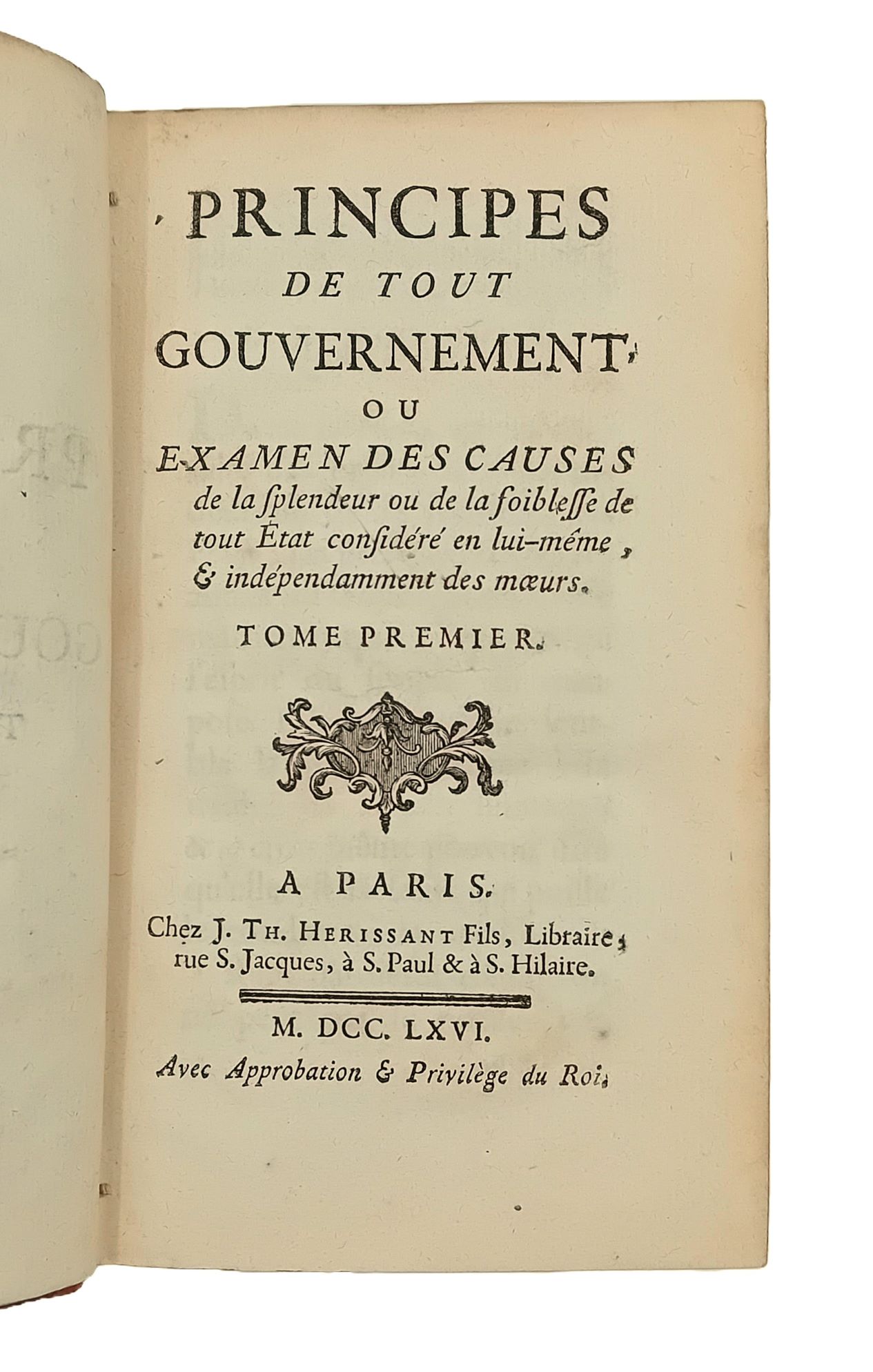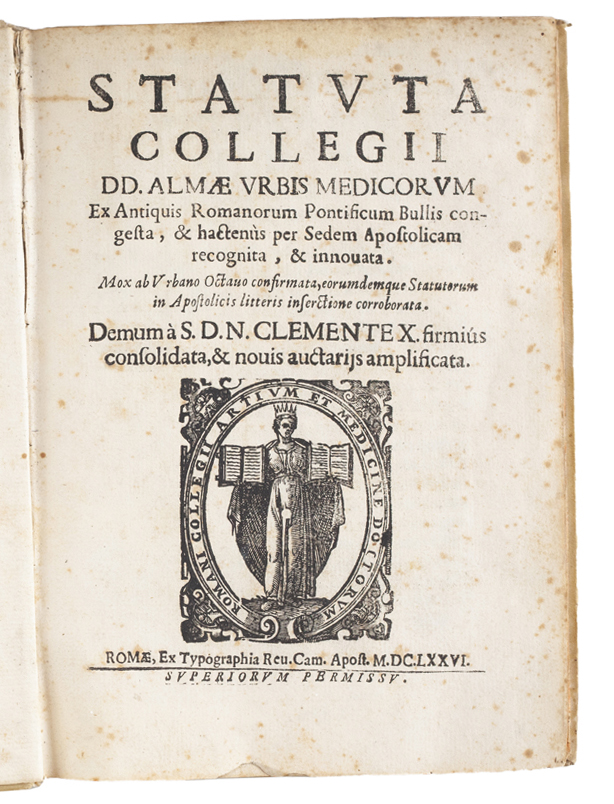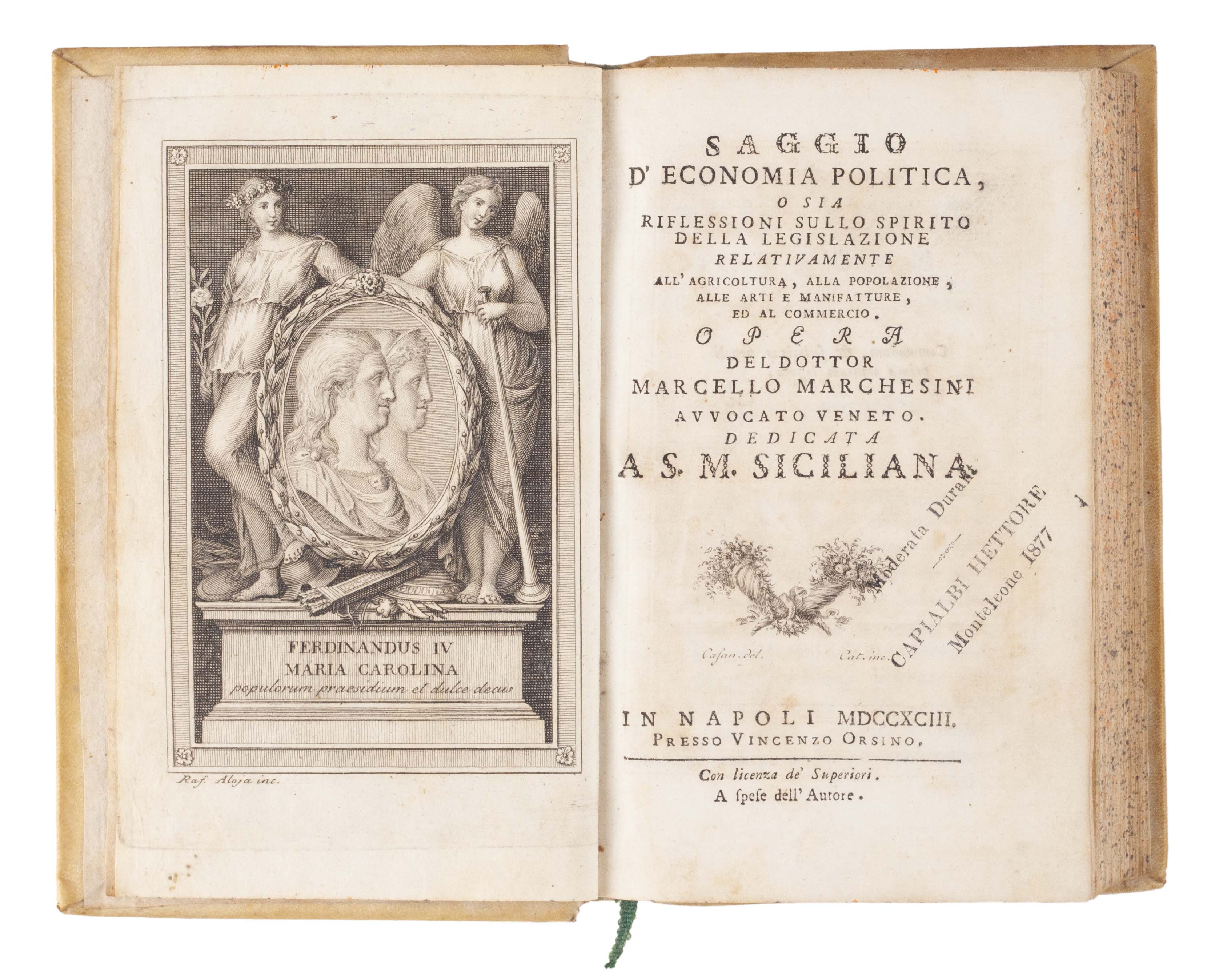

[AUXIRON, Claude-François Joseph d’.]
Principes de tout gouvernement, ou Examen des causes de la splendeur ou de la foiblesse de tout État considéré en lui-même, & indépendamment des moeurs.
Paris, J. Th. Hérissant fils, 1766.
Two vols in one, 12mo, pp. lxxx, 213, [1] blank; [iv], 314, [4] privilège; light waterstain to the upper corner of a couple of leaves in the preliminaries; upper edge lightly browned throughout, with the odd spot elsewhere; a nice, crisp copy in contemporary full mottled calf, marbled endpapers, red edges, spine tooled gilt in compartments, with an armorial gilt stamp to the bottom compartment, raised bands, with a gilt morocco lettering-piece.

Added to your basket:
Principes de tout gouvernement, ou Examen des causes de la splendeur ou de la foiblesse de tout État considéré en lui-même, & indépendamment des moeurs.
First edition of this influential study of the roots of a thriving state, by the anti-physiocratic economist Claude François Joseph d’Auxiron (1728 – 1778).
Auxiron opens with an account of the establishment of society, emphasising the necessity of laws as a brake on human excesses, and explaining how a hierarchy should be set up, and the roles of agriculture, trades, and industry. Sections follow on the proper system of property and land ownership and use, the structure of a working financial system, the internal trade of a state, the imposition of taxes, various kinds of luxury, and the ways in which a state finances itself.
‘Auxiron’s work is significant chiefly because of his analysis of the determinants of population capacity, and his treatment of the relation between population growth and the interoccupational and interclass movements and balance in society’ (Spengler, French Predecessors of Malthus, p. 296). Auxiron stressed the importance of commerce in the attainment of maximum yield from the given land area of any country, allowing for specialisation through trading, thereby creating a wealth-induced population expansion which would be impossible in a closed economy. He opposed Rousseau’s beliefs on the relationship between labour and production. ‘Si la terre rendoit … proportion des travaux de ceux qui la cultivent, comme certains Auteurs l’ont avancé ce que nous disons ici seroit entièrement faux. Mais l’expérience de tous les lieux & de tous les siècles fait voir que la fécondité de la terre ne dépend pas uniquement des travaux des hommes … Il est étonnante,’ he continues, ‘que de tous les auteurs, ce soit M. Rousseau de Genêve qui ait le plus fortement soutenu la proposition que je combats, lui avoit sous les yeux la preuve la plus convaincante du contraire’ (II, 302–4).
Higgs 3943; INED 145; Kress 6314; not in Einaudi or Goldsmiths’; uncommon: further copies are recorded at Berkeley, Princeton, and Syracuse Universities, with OCLC also recording Waseda, Hagley, Arizona, and the National Library of Scotland outside Continental Europe; see Perrot, Une histoire intellectuelle d’économie politique (1992), for a detailed discussion of Auxiron’s work.

